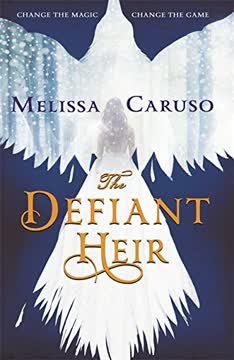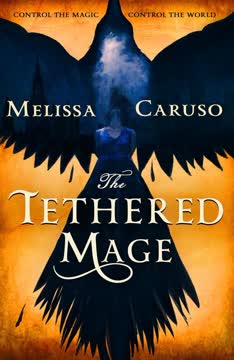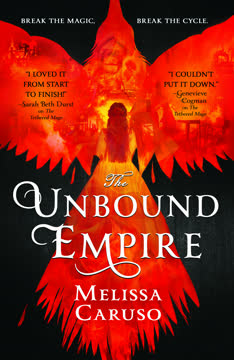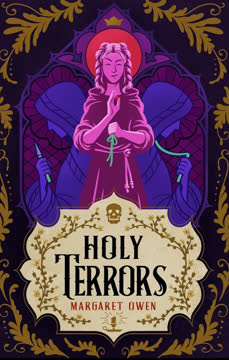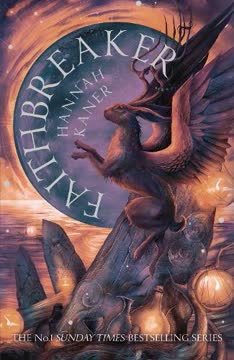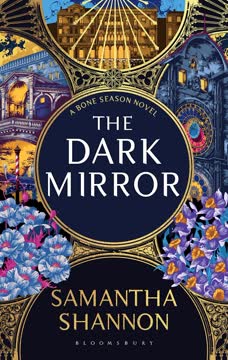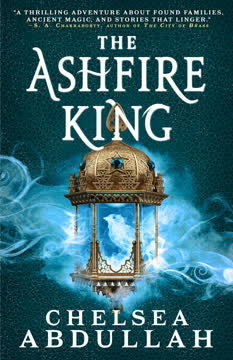Plot Summary
1. Fire and Friendship Tested
Amalia Cornaro, scholar and noble, trains with her fire warlock Falcon, Zaira, on a remote island. Their uneasy partnership is tested by the ever-present threat of Zaira's uncontrollable balefire. The Empire faces looming war with Vaskandar, and Zaira's power is both a weapon and a burden. Their banter masks real anxieties: Zaira's fear of being used as a tool, Amalia's guilt over the Falcon system, and the uncertainty of their future. When they discover the murdered body of a Falconer, the fragile peace is shattered, and the threat of Vaskandran aggression becomes personal and immediate, setting the stage for a story of loyalty, power, and impossible choices.
2. Murder on the Island
The group reels from the discovery of the murdered Falconer and the implications for his missing Falcon. At a somber dinner, Amalia, Zaira, and Marcello discuss the political ramifications and the possibility of Vaskandran involvement. The Empire's enemies are moving, and the murder is a warning. Amalia's personal and political lives intertwine as she navigates her feelings for Marcello and the responsibilities of her station. The threat is not just external; it is a test of the Empire's ability to protect its own, and of Amalia's resolve to change a system that turns people into weapons.
3. Shadows at the Banquet
At a glittering dinner party, Amalia and Zaira use artifice to eavesdrop on Vaskandran plots. The Vaskandran ambassador and a mysterious woman discuss a list of targets—Falcons marked for death. The tension explodes when Amalia's friend Istrella is attacked by the assassin. The attempt is foiled, but the message is clear: the Witch Lords are targeting the Empire's most valuable mages. Amalia's world of politics and privilege collides with deadly reality, and she is forced to confront the vulnerability of those she cares about, and the lengths to which their enemies will go.
4. The Assassin's List
The discovery of the assassin's list reveals a systematic campaign against the Empire's Falcons. Amalia's own name is on it, along with her friends and allies. The Vaskandran ambassador, under pressure, reveals the fractured nature of Witch Lord politics and the coming Conclave—a gathering that will decide war or peace. Amalia's mother, the formidable La Contessa, pushes her to use every connection, including the dangerous Prince Ruven, to influence the outcome. The stakes are raised: the Empire's survival may depend on Amalia's ability to navigate a world of shifting alliances and hidden knives.
5. Courtship and Conspiracy
At the Festival of Beauty, Amalia is thrust into the spotlight, both as a political figure and as a woman. She meets Kathe, the enigmatic Crow Lord, and in a daring move, agrees to a symbolic courtship to secure his alliance. The gesture is both a political masterstroke and a personal risk, complicating her feelings for Marcello. The courtship becomes a public spectacle, drawing the attention of allies and enemies alike. Amalia's willingness to use her own hand as a bargaining chip underscores the personal cost of power, and the thin line between strategy and sacrifice.
6. The Crow Lord's Game
Amalia and Kathe engage in a battle of wits, playing games of secrets and revelations. Their courtship is a dance of mutual advantage, but also genuine curiosity and attraction. Kathe's motives are layered—vengeance, ambition, and perhaps something more. Amalia is drawn to his unpredictability, even as she fears his power. Their alliance unsettles the political landscape, and Amalia's mother warns her of the dangers of trusting a Witch Lord. The chapter explores the seductive allure of power, the risks of intimacy, and the necessity of playing the game to survive.
7. Dangerous Alliances Forged
As attacks on Falcons escalate, Amalia and her allies realize there is a traitor within the Mews. The Empire's own systems are vulnerable, and suspicion falls on those closest to them. Lord Caulin, the doge's shadowy agent, pushes for draconian measures, threatening the Falcons' freedom. Amalia must balance her ideals with the harsh realities of war, forging alliances with those she cannot fully trust. The traitor's presence is a constant threat, and the sense of siege deepens. The chapter highlights the corrosive effects of fear and the difficulty of holding onto one's principles in desperate times.
8. The Festival of Beauty
Amidst the splendor of the imperial ball, Amalia juggles suitors, alliances, and the ever-present threat of assassination. The ball is a microcosm of the Empire: dazzling on the surface, but seething with intrigue beneath. Amalia's courtship with Kathe becomes the talk of the city, and her every move is scrutinized. The festival is both a celebration and a battlefield, where words are weapons and every gesture has meaning. The chapter captures the tension between public performance and private longing, and the way power is wielded through spectacle as much as through force.
9. The Witch Lords Gather
The Witch Lords begin to converge, each with their own ambitions and grievances. Amalia is sent to Callamorne, her father's homeland, to secure alliances and investigate a magical threat to the border. The journey is fraught with danger—assassins, traitors, and the ever-present risk of war. Amalia's family ties are both a strength and a vulnerability, and the legacy of her bloodline becomes a key to unlocking the mysteries of Vaskandar. The chapter explores the weight of history, the complexity of identity, and the challenge of reconciling personal loyalty with duty to the Empire.
10. Poison and Betrayal
On the road to Callamorne, Amalia and her companions are attacked by a Vaskandran assassin. Poison and violence threaten to unravel their mission, and the traitor's hand is revealed in the most personal way. The journey becomes a crucible, testing the bonds of friendship and the limits of trust. Amalia's own vulnerability—her dependence on a life-saving elixir—becomes a symbol of the precariousness of power. The chapter is a meditation on betrayal, resilience, and the cost of survival in a world where danger comes from every side.
11. The Conclave's Reckoning
In Callamorne, Amalia confronts the legacy of her family and the enmity of the Lady of Thorns. The Witch Lords' politics are revealed to be as deadly as any battlefield, with alliances forged and broken in a single conversation. The Conclave is a stage for old grudges and new ambitions, and Amalia must use every tool at her disposal—wit, charm, and the threat of balefire—to protect her people. The chapter is a study in negotiation, the power of secrets, and the necessity of compromise in the face of overwhelming odds.
12. The Volcano's Threat
The discovery of Ruven's plot to trigger a volcanic eruption on Mount Whitecrown raises the stakes to existential levels. Amalia and her allies race to decipher the magical artifice circles that could unleash devastation on both sides of the border. The threat is both physical and symbolic: the power to destroy cities with a word, the ultimate expression of the Witch Lords' might. The chapter is a race against time, blending scholarship, courage, and the willingness to make impossible choices for the greater good.
13. Blood and Boundaries
The journey through Vaskandar exposes Amalia and Zaira to the true nature of Witch Lord magic: domains bound by blood, life, and sacrifice. The boundaries between freedom and bondage blur, and the price of immortality is laid bare. Amalia's own bloodline becomes a key to survival, but also a source of danger. The chapter explores the tension between belonging and autonomy, the allure of power, and the way history is written in blood and stone.
14. The Price of Power
As the Conclave reaches its climax, Amalia is forced to choose between loyalty to her friends and duty to the Empire. The rescue of the captured Falcons becomes a test of her principles, and the threat of Ruven's volcano looms ever larger. The Witch Lords' politics are a web of debts, favors, and grievances, and Amalia must navigate them with care. The chapter is a meditation on the cost of leadership, the burden of command, and the way power demands sacrifice from those who wield it.
15. The Rescue and the Choice
The daring rescue of the Falcons is both a triumph and a crisis. Some choose to return to the Empire; others seek freedom in Vaskandar, forcing Amalia to defy orders and risk being branded a traitor. Zaira's own choice—to stay or to go—becomes a microcosm of the larger struggle between freedom and duty. The chapter is a reckoning with the limits of law, the meaning of friendship, and the courage to do what is right, even when it is forbidden.
16. The Eruption's Sacrifice
The eruption of Mount Whitecrown is both a literal and metaphorical explosion. Amalia must choose where to direct the devastation, knowing that someone she loves will die. The cost of leadership is made brutally clear: to save thousands, she must sacrifice her cousin Roland. The aftermath is grief, guilt, and the knowledge that this is only the beginning. The chapter is a searing exploration of the price of power, the impossibility of clean choices, and the way history is written in loss.
17. Aftermath and Mourning
In the wake of disaster, Amalia faces the consequences of her choices. The Empire is saved, but at a terrible cost. Bree's grief and anger are a mirror to Amalia's own guilt, and the path to forgiveness is long and uncertain. The political landscape has shifted: new alliances, new enemies, and the ever-present threat of war. Amalia's journey is not over; she is changed, hardened, but still determined to fight for a better future. The story ends with hope, resolve, and the knowledge that the struggle for freedom and justice is never truly finished.
Characters
Amalia Cornaro
Amalia is the daughter of La Contessa, heir to one of the Empire's most powerful families, and a scholar of magical theory. Her journey is one of transformation: from bookish idealist to a woman forced to make impossible choices for the good of her people. Her relationships—with Zaira, Marcello, Kathe, and her family—are fraught with love, loyalty, and the ever-present tension between personal desire and public duty. Amalia's greatest strength is her empathy, but it is also her greatest vulnerability. She is haunted by the costs of power, the weight of history, and the knowledge that every victory comes with a price.
Zaira
Zaira is the Empire's only fire warlock, a woman of immense power and fierce independence. Scarred by a childhood of poverty and exploitation, she resists all attempts to control her, even as she is bound to Amalia by the Falcon system. Her relationship with Amalia is complex: part friendship, part rivalry, part reluctant partnership. Zaira's journey is one of learning to trust, to love, and to accept that freedom sometimes means choosing to stay. Her romance with Terika reveals a softer side, but her loyalty is always hard-won. Zaira embodies the tension between power and vulnerability, and the struggle to define oneself in a world that wants to use you.
Marcello Verdi
Marcello is Amalia's closest confidant and the captain of the Falcons. Haunted by his own failures and the burdens of command, he is both a source of strength and a symbol of the costs of duty. His love for Amalia is deep but complicated by politics and circumstance. Marcello's sense of responsibility often leads him to self-sacrifice, and his struggle to reconcile personal happiness with public service mirrors Amalia's own journey. His relationship with his sister Istrella and his unwavering support for the Falcons reveal a man of integrity, compassion, and quiet courage.
Kathe, the Crow Lord
Kathe is a Witch Lord of Vaskandar, master of crows and games. His motives are layered: vengeance against the Lady of Thorns, ambition for power, and a genuine fascination with Amalia. Kathe is both ally and potential betrayer, a man who delights in secrets and the thrill of the game. His courtship of Amalia is both political and personal, and his willingness to use her as bait reveals the dangers of trusting those who play by different rules. Yet, beneath the mischief, there is a capacity for loyalty and even love. Kathe embodies the seductive allure and peril of power unbound by law.
La Contessa Lissandra Cornaro
Amalia's mother is the architect of the Empire's power, a woman of formidable intellect and will. She is both mentor and judge, pushing Amalia to greatness while warning her of the costs. La Contessa's love is fierce but pragmatic; she values results over sentiment, and her lessons are often hard. Her relationship with Amalia is a study in generational tension: the old guard teaching the new, but also learning to let go. La Contessa's presence looms over every decision, a reminder that power is both a gift and a burden.
Terika
Terika is a skilled alchemist and Zaira's romantic partner. Her warmth, intelligence, and resilience make her a stabilizing force in the group. Terika's own history of exploitation and survival mirrors Zaira's, and their relationship is a rare source of joy and hope. Terika's loyalty is unwavering, but she is not afraid to challenge Zaira or Amalia when necessary. Her role in the story is both practical—providing life-saving elixirs and antidotes—and emotional, grounding the narrative in the possibility of love and healing.
Istrella Verdi
Marcello's sister is a prodigy in artifice, whose inventions are both marvels and dangers. Istrella's eccentricity masks a deep vulnerability, and her capture and control by Ruven is a personal and political tragedy. Her struggle to break free of magical compulsion is a microcosm of the larger battle for autonomy and freedom. Istrella's relationship with Marcello is tender and fraught, and her loyalty to her friends is unwavering, even when her own will is not her own.
Ruven, the Skinwitch
Ruven is the new Witch Lord of Kazerath, a Skinwitch whose power is both seductive and horrifying. His ambition knows no bounds, and his willingness to use and destroy others for his own ends makes him a terrifying adversary. Ruven's mastery of both vivomancy and alchemy allows him to enslave the mage-marked, and his plot to trigger a volcanic eruption is the ultimate expression of his disregard for life. He is a mirror to the dangers of unchecked power, and his downfall is both a victory and a warning.
The Lady of Thorns
The Lady of Thorns is both enemy and victim, driven by love for her dying daughter and hatred for the Lochaver line. Her willingness to kill and betray is matched only by her desperation to save her child. She is a symbol of the way power corrupts, and of the tragic consequences of a world where immortality is bought with blood. Her enmity with Amalia is personal and political, and her death is both a victory and a loss.
Bree Lochaver
Bree is Amalia's cousin, a vivomancer hiding her power, and a fierce advocate for her family and her people. Her grief over Roland's death is a searing indictment of the costs of leadership, and her willingness to challenge Amalia is a reminder that love and anger often go hand in hand. Bree's humor, courage, and loyalty make her a vital presence, and her journey is one of learning to forgive, to fight, and to survive in a world that demands too much.
Plot Devices
The Falcon System
The Falcon system, which binds mage-marked individuals to Falconers through magical jesses, is both a source of the Empire's strength and a symbol of its moral compromise. It allows the Empire to control and deploy powerful mages as weapons, but at the cost of their freedom. The system is a constant source of tension: Zaira's struggle for autonomy, Amalia's reform efforts, and the threat of betrayal from within. The Falcon system is both a literal and metaphorical chain, and its reform is a central goal of the narrative.
The Conclave
The Conclave of Witch Lords is the narrative's central set piece, a gathering where war and peace are decided not by battle, but by words, bargains, and the exchange of favors and grievances. The structure of the Conclave—Arrival, Reckoning, Kindling—mirrors the escalating stakes of the story. The use of candles, stones, and ritualized speech turns politics into theater, and every gesture is loaded with meaning. The Conclave is both a crucible and a chessboard, where every move has consequences.
Magical Artifice and Vivomancy
The story's magic system is a blend of precise, scholarly artifice and raw, instinctive vivomancy. The plot to trigger a volcanic eruption is the ultimate expression of this fusion: a weapon that combines the logic of artifice with the destructive force of nature. The interplay between these forms of magic is both a source of innovation and a site of danger, and the characters' ability to navigate and understand them is key to their survival.
Betrayal and Compulsion
The use of alchemical potions and magical compulsion to control the will of others is a recurring threat. Istrella's betrayal under Ruven's influence, Terika's forced attack on Zaira, and the enslavement of the Falcons are all manifestations of the story's central anxiety: that power, unchecked, will always seek to dominate. The narrative structure uses foreshadowing and misdirection to keep the reader guessing, and the revelation of betrayal is always both a shock and an inevitability.
Sacrifice and Moral Dilemma
The story's emotional core is the series of impossible choices Amalia must make: whom to trust, whom to save, whom to sacrifice. The eruption of Mount Whitecrown is the ultimate test, forcing her to choose between the lives of her cousin and thousands of strangers. The narrative uses these dilemmas to explore the nature of power, the cost of leadership, and the meaning of justice. Every victory is bought with loss, and every decision leaves scars.
Analysis
Melissa Caruso's The Defiant Heir is a masterful exploration of power, freedom, and the cost of leadership, set in a world where magic is both a gift and a curse. The novel interrogates the structures—political, magical, and personal—that bind individuals and societies, asking what it means to wield power responsibly. Through Amalia's journey from scholar to stateswoman, the story examines the tension between personal desire and public duty, the allure and danger of alliances, and the ever-present threat of betrayal. The Falcon system is both a literal and metaphorical chain, and its reform is a central moral imperative. The Conclave, with its rituals and bargains, is a microcosm of the world's politics: every gesture is loaded with meaning, and every alliance is fraught with risk. The novel's greatest strength is its refusal to offer easy answers: every victory comes with a price, and every act of mercy is shadowed by the possibility of loss. In the end, The Defiant Heir is a story about the courage to choose, the wisdom to accept the consequences, and the hope that, even in a world of fire and blood, justice and freedom are worth fighting for.
Last updated:
Review Summary
The Defiant Heir is highly praised as an excellent sequel, expanding the world and characters introduced in The Tethered Mage. Readers love the political intrigue, character development, and introduction of new characters like Kathe. The magic system and world-building receive high marks. Many reviewers consider it better than the first book, with compelling relationships and high stakes. Some criticism exists regarding the love triangle subplot. Overall, the book is viewed as a strong entry in an underrated fantasy series.
